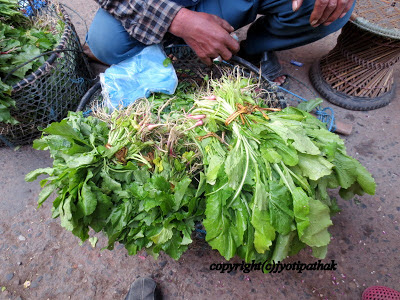Time-it’s the West’s favorite measuring device. Time-something Nepali have a vague understanding of. This, in my opinion, is the biggest issue for Westerners to get a hold of when visiting Nepal.
If you are not in total harmony of the irrelevance of time in Nepal you will be frustrated each day you are here until you leave. In retrospect, you will process it as a country that just didn’t work for you.
To a tourist, you may feel like you have to hurry up just so you can wait and that doesn’t feel good. It feels like disrespect. To the Nepali, he shows up and seems to expect you to be proud of him for doing that much.
First, be diligent about the time issue. It’s important to us and it is a tool that will either spell success or failure back home. If you stay here too long you may just make everyone crazy for a while when you show up on ‘Nepali time'-20 minutes late.
So, dealing with this issue is easy if you will just remember a few tips.
First, confirm everything and take all phone numbers of everyone and everything you come across in Nepal that you think you may want to revisit.
Call that morning to confirm the day’s activities.
Bring a book, magazine or mobile phone so you will have something to do while you wait. A dozen games of Free Cell on your mobile will take your mind off the wait.
Look around for a young person to talk with. They tend to be likely candidates for being able to speak English. You can even have fun with very small children by asking what their name is. Also ask, ‘What is your father’s name,’ ‘How are you’ and ‘Where are you from?’ Most people do know these four questions in English.
As noted below, understand the reasons nothing works smoothly in Nepal.
Infrastructure is severely lacking. For example, I wanted to go to Janapur, which is almost directly south of Kathmandu. One would need to go west almost to Chitwan and then take another bus to go east almost as far and then south. The mileage and time almost double from what you would expect by looking at a map.
Communication lines are very poor. The mobile phone lines become jammed daily. Sometimes the phone doesn’t ring on the other end. Even text messaging can take hours to be received.
The daily routine of Nepali is very different from what Westerners are used to. Nepali eat twice a day, once mid morning and once in the evening. The rest of the day it’s tea and cookies or something light and inexpensive. This makes early morning meetings difficult. Although they are up before sunrise, they like to start the work day around 10 am.
Transportation is difficult. Sometimes even a small traffic accident stops traffic for a long time. Buses break down quite often and your Nepali friend is not likely to think about calling you to let you know he will be late. They know they are on their way and don’t see a reason for you to worry.
People love to ‘people watch’ in Nepal. I’ve wasted a lot of time with this pastime. It’s only natural to want to see what everyone is looking at, but there is usually no noticeable reason for the crowd. I suggest avoiding crowds whenever possible. If you think I am exaggerating I offer this example: Every time I pass a particular bridge under construction I see a huge crowd gathered. What are they looking at? They seem to be fascinated with the rig that hammers the huge pillars into the ground.
One last reason for many cultural issues is that the Nepali do not/will not and are totally unable to give you any news that you might not like to hear. So, all of the above, being things we don’t want to hear about, the Nepali will not let us know.
My solution is to let the Nepali friend know that I will confirm the time in the morning. Do not give a specific time to meet until you are literally on your way. You will still have to wait for them. It’s Nepal, the ‘Chill out’ capital of the world.




.jpg)




Comments
Post a Comment